Related Research Articles

Sir Bertram Sydney Barnsdale Stevens, also referred to as B. S. B. Stevens, was an Australian politician who served as the 25th Premier of New South Wales, in office from 1932 to 1939 as leader of the United Australia Party (UAP).
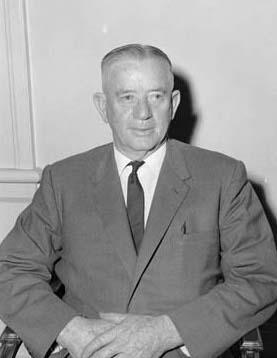
Francis Henry Walsh was the 34th Premier of South Australia from 10 March 1965 to 1 June 1967, representing the South Australian Branch of the Australian Labor Party.

Sir Richard Layton Butler KCMG was the 31st Premier of South Australia, serving two disjunct terms in office: from 1927 to 1930, and again from 1933 to 1938.

Robert Stanley Richards was an Australian politician who served as the 32nd Premier of South Australia, representing the South Australian Branch of the Australian Labor Party.

Albert Redvers George Hawke was an Australian politician who was the premier of Western Australia from 23 February 1953 to 2 April 1959. He represented the Labor Party.
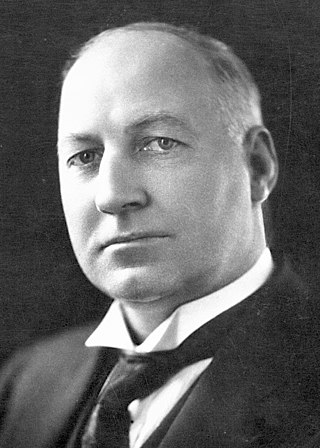
Lionel Laughton Hill was an Australian politician who served as the thirtieth Premier of South Australia, representing the South Australian Branch of the Australian Labor Party.

Josiah Thomas was an Australian politician. He was elected to the House of Representatives at the inaugural 1901 federal election, representing the Labor Party. Thomas served as a minister in Andrew Fisher's first two governments, as Postmaster-General and Minister for External Affairs (1911–1913). He joined the Nationalist Party after the 1916 Labor split and transferred to the Senate at the 1917 election, serving as a Senator for New South Wales from 1917 to 1923 and from 1925 to 1929.
This is a list of members of the South Australian House of Assembly from 1933 to 1938, as elected at the 1933 state election:

State elections were held in South Australia on 8 April 1933. All 46 seats in the South Australian House of Assembly were up for election. The incumbent Parliamentary Labor Party government led by Premier Robert Richards was defeated by the opposition Liberal and Country League led by Leader of the Opposition Richard L. Butler. Each district elected multiple members.

State elections were held in South Australia on 29 April 1944. All 39 seats in the South Australian House of Assembly were up for election. The incumbent Liberal and Country League government led by Premier of South Australia Thomas Playford IV defeated the opposition Australian Labor Party led by Leader of the Opposition Robert Richards.

The 2011 New South Wales state election held on Saturday, 26 March 2011. The 16-year-incumbent Labor Party government led by Premier Kristina Keneally was defeated in a landslide by the Liberal–National Coalition opposition led by Barry O'Farrell.

Elections were held in the state of Western Australia on 8 April 1933 to elect all 50 members to the Legislative Assembly. The one-term Nationalist-Country coalition government, led by Premier Sir James Mitchell, was defeated by the Labor Party, led by Opposition Leader Philip Collier.
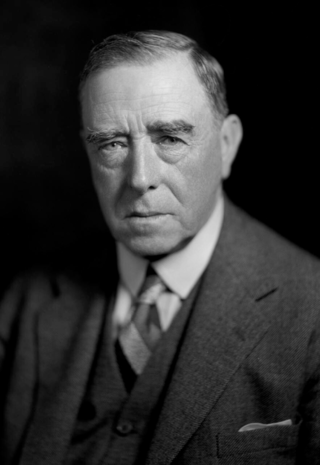
The 1935 Victorian state election was held in the Australian state of Victoria on Saturday 2 March 1935 to elect 53 of the 65 members of the state's Legislative Assembly. 12 seats were uncontested.

The Wran ministry (1983–1984) or Fifth Wran ministry was the 75th ministry of the New South Wales Government, and was led by the 35th Premier of New South Wales, Neville Wran, representing the Labor Party. It was the fifth of eight consecutive occasions when Wran was Premier.
The Parliamentary Labor Party was a political party active in South Australia from August 1931 until June 1934.
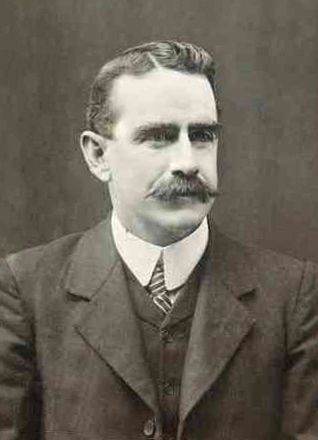
William Joseph Denny was an Australian journalist, lawyer, politician and decorated soldier who held the South Australian House of Assembly seats of West Adelaide from 1900 to 1902 and then Adelaide from 1902 to 1905 and again from 1906 to 1933. After an unsuccessful candidacy as a United Labor Party (ULP) member in 1899, he was elected as an "independent liberal" in a by-election in 1900. He was re-elected in 1902, but defeated in 1905. The following year, he was elected as a ULP candidate, and retained his seat for that party until 1931. Along with the rest of the cabinet, he was ejected from the Australian Labor Party in 1931, and was a member of the Parliamentary Labor Party until his electoral defeat at the hands of a Lang Labor Party candidate in 1933.
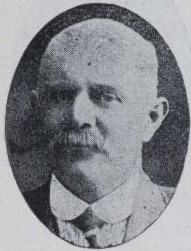
John Nicholas Pedler was an Australian politician. He was a member of the South Australian House of Assembly from 1918 to 1938, representing the electorate of Wallaroo.
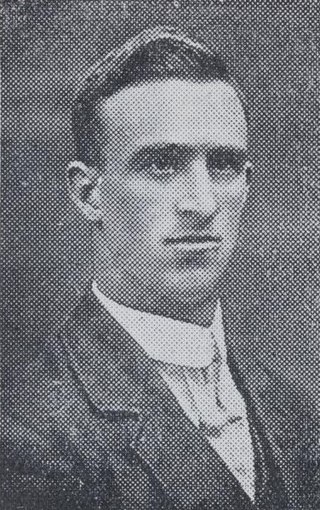
Frank Clement Staniford was an Australian politician. He represented the South Australian House of Assembly multi-member seat of Murray from 1924 to 1927 and 1930 to 1933 for the Labor Party. He was Chairman of Committees under Lionel Hill in his second term, and was Minister for Education, Minister for Immigration, Minister for Labour and Employment and Minister for Local Government in the short-lived Richards Ministry of 1933, following the 1932 Labor split.

William Smith Harvey was an Australian politician. He who represented the South Australian House of Assembly multi-member seat of Newcastle from 1918 to 1933. He was a Labor member until the 1932 Labor split, when he was among the MPs to sit as part of the Parliamentary Labor Party, but lost his seat at the 1933 election.

The South Australian Labor Party, officially known as the Australian Labor Party (South Australian Branch) and commonly referred to simply as South Australian Labor, is the South Australian Branch of the Australian Labor Party, originally formed in 1891 as the United Labor Party of South Australia. It is one of two major parties in the bicameral Parliament of South Australia, the other being the Liberal Party of Australia (SA Division).
References
- ↑ "Statistical Record of the Legislature, 1836-2009" (PDF). Parliament of South Australia. Retrieved 19 September 2015.